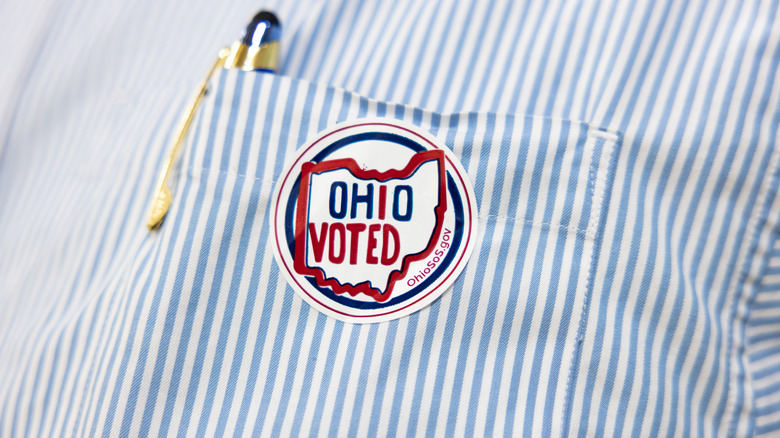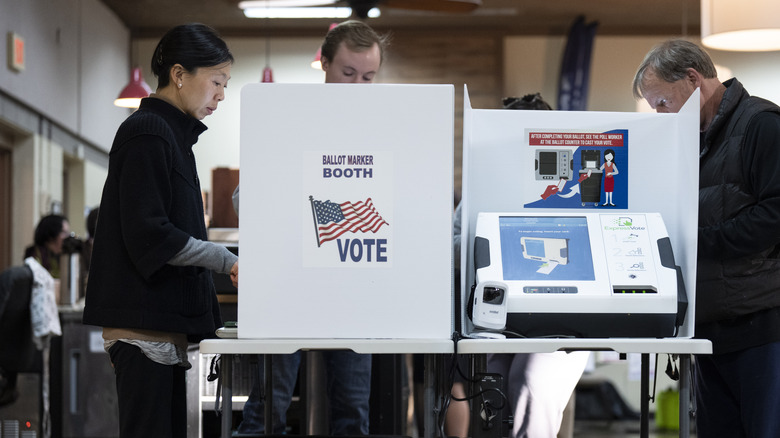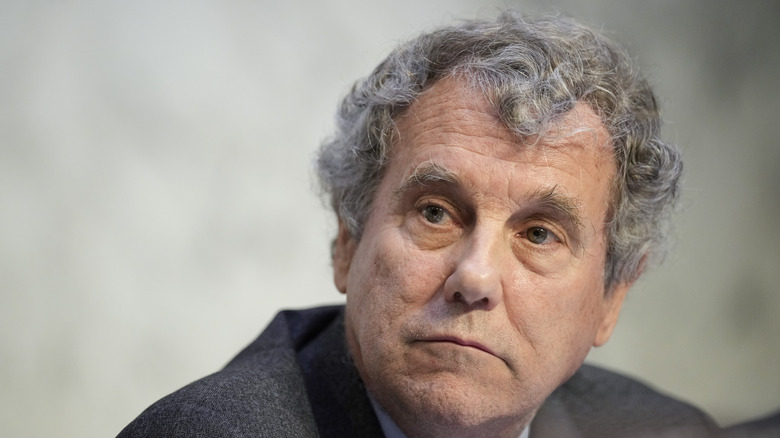Why Ohio Is So Important In Elections
In a Democracy, each person's vote counts as much as any other — in theory, that is. But when it comes to politics, theory and reality don't always align. In United States presidential elections, some states seem to matter a bit more than others. This is primarily due to the makeup of the electorate: Does the state consistently go for one political party over another, or like Ohio, is it a "swing state" where results are less predictable, as Belt Magazine reported in 2015?
Other factors putting Ohio front and center include electoral votes. With 18 as of 2023 — but set to lose one in 2024 — an Ohio win helps a candidate score that all-important Electoral College total of at least 270. And before 2020 — when incumbent President Donald Trump won the Buckeye State but lost the White House — Ohio's winning streak was unbroken. Since 1960, no presidential candidate had come out on top in Ohio but lost the Oval Office, according to CNN. In addition, no Republican candidate has ever come short in Ohio and won the presidency, The Washington Post reports.
On Ohio's importance, former Ohio Democratic Party chairman David Pepper told Belt Magazine, "If you were to boil America down to one state, it would look like Ohio. We have the big cities, rural, North, South. When you run the rigors of winning Ohio, you are going through what it takes to win the country."
Ohio's bellwether status questioned
For reasons mentioned, Ohio election results are thought of as a bellwether of national politics. With Ohio's six-decade trend of picking the president broken in 2020, some wondered if that might have changed, the Associated Press (AP) reported that year. And since Trump lost the national election but won Ohio, observers noted the swing state may have finally swung toward the GOP for good.
As founding director of the Ohio Northern Institute for Civics and Public Policy Robert Alexander wrote in The Columbus Dispatch, "Ohioans have grown used to being wooed by presidential candidates for generations. That could be a thing of the past. Where candidates spend their time as the 2024 race takes shape will ultimately determine whether or not Ohio has changed its color more permanently from purple to red."
Ohio Republican lawmakers have also proposed bumping Ohio's presidential primary from March to May, likely affecting state presidential primary outcomes. On the move, Kyle Kondik managing editor of Sabato's Crystal Ball told The Columbus Dispatch, "The conventional wisdom is that moving a primary back reduces the odds that a state will play an important role in the outcome. That is true as far as it goes, although movingmoving back could also end up giving a state a greater role — if the race goes deep into the calendar."
The state's political importance extends beyond the presidency
Despite Ohio's changing electorate, as of 2023, Ohio's presidential primary has accurately picked all but three presidents in more than a century, tied with Florida, Nevada, and New Mexico, per The Cincinnati Enquirer. For this reason, Ohio's political importance is unlikely to change any time soon. Also in 2023, Ohio voted against a GOP-supported ballot measure related to changing the state's constitution, according to the AP.
As Politico wrote, if it had passed, the measure could have affected the outcome of a fall 2023 vote on protecting abortion rights in the state constitution, supported by abortion rights activists. The rejection of the measure — referred to as "Issue 1" — proved in the minds of some that Ohio's turn from purple to red was far from assured. After vote, Democratic Congressional Campaign Committee spokesperson Aidan Johnson told ABC News, "Republicans' deeply unpopular war on women's rights will cost them district after district, and we will remind voters of their toxic anti-abortion agenda every day until November."
One year earlier, Ohio U.S. Senate Democrat Sherrod Brown (pictured) — braced for a tough 2024 reelection bid due to his home state's changing political demographics — put it plainly when he told CNN that "of course" Ohio was still in play. "I'm not worried. ... I know it's a challenge always, but I'm going about doing my job," he said.


